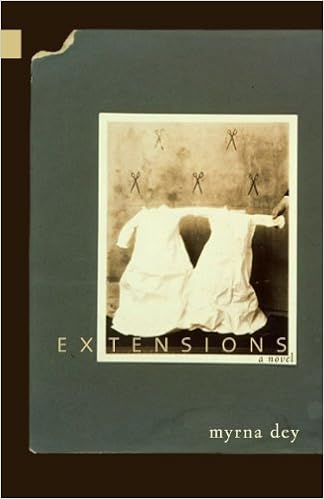Since I
started by blog, I’ve done an annual Advent Book Calendar highlighting books I
have enjoyed and authors I really like.
This year I thought I’d do an Advent Book Calendar with a twist; for
each day leading up to Christmas, I’m going to post a review of a book to which
I’ve given only one star (Throw a book at this one) or two stars (Don’t put this book in your book bag). Though I would not recommend these books,
others have disagreed with me. Each
book, on Goodreads, has received a 3 or 4 Star average rating.
Review of Extensions by Myrna Dey
1
Star
Arabella
Dryvynsydes, an RCMP officer, feels adrift after the death of her mother and a
romantic breakup. By chance she finds a photograph of her grandmother and her
twin sister at a garage sale in rural Saskatchewan. Arabella sets out to
discover how the photo, taken 100 years earlier on Vancouver Island, found its
way there. She also acquires a few letters written by her great-grandmother to
her siblings in Wales, letters in which she describes the poverty and
loneliness of life in a Vancouver Island mining town. Gradually Arabella
uncovers family secrets as she also solves crime cases.
A problem
with the book is the many chance occurrences and coincidences. The plot seems
less driven by character than by a plot graph developed by the author. All of
Arabella's encounters and experiences connect somehow to her search for
information about her maternal ancestors. For example, she takes a history course,
although she had never previously shown much interest in academics, and,
conveniently, she is able to use her great-grandmother's letters for a term
paper and eventually to solve a historical mystery. One of the letters, to
which she gains access only towards the end of the book, helps her to solve a
murder she is investigating.
Many of the
characters are sketched in broad strokes and are unconvincing. People keep
secrets and fabricate lies with insufficient motivation to justify their
actions. A couple of great-aunts are totally vindictive and malicious and seem
to have no redeeming qualities, while another is too good to be true. Several
relatives are so lacking in ordinary human curiosity that they don't read
family documents bequeathed to them; that total lack of interest means secrets
remain buried even longer, only to be uncovered by Arabella of course.
The theme
is rather obvious: "we are never as far removed from one another as we
like to think" (247). In case the reader fails to understand, an
explanation is given: "And what was I but an extension, through Dad, of
[my paternal grandmother]. Just as this elderly cousin coasted on what her
mother had gone through and passed on, so were our comfortable lives determined
by what [my grandmother] had borne, distilled, and set in motion . . ."
(245).
I did enjoy
reading about the history of mining on Vancouver Island; about this history I
knew virtually nothing, and the book has inspired me to do some further
research.
The
mechanical construction of the plot and the flawed characterization leave no
doubt that this is a debut novel. It may have won the Reader's Choice Award,
but I suspect that win was more the result of an organized voting campaign than
the literary merits of the book itself.

No comments:
Post a Comment